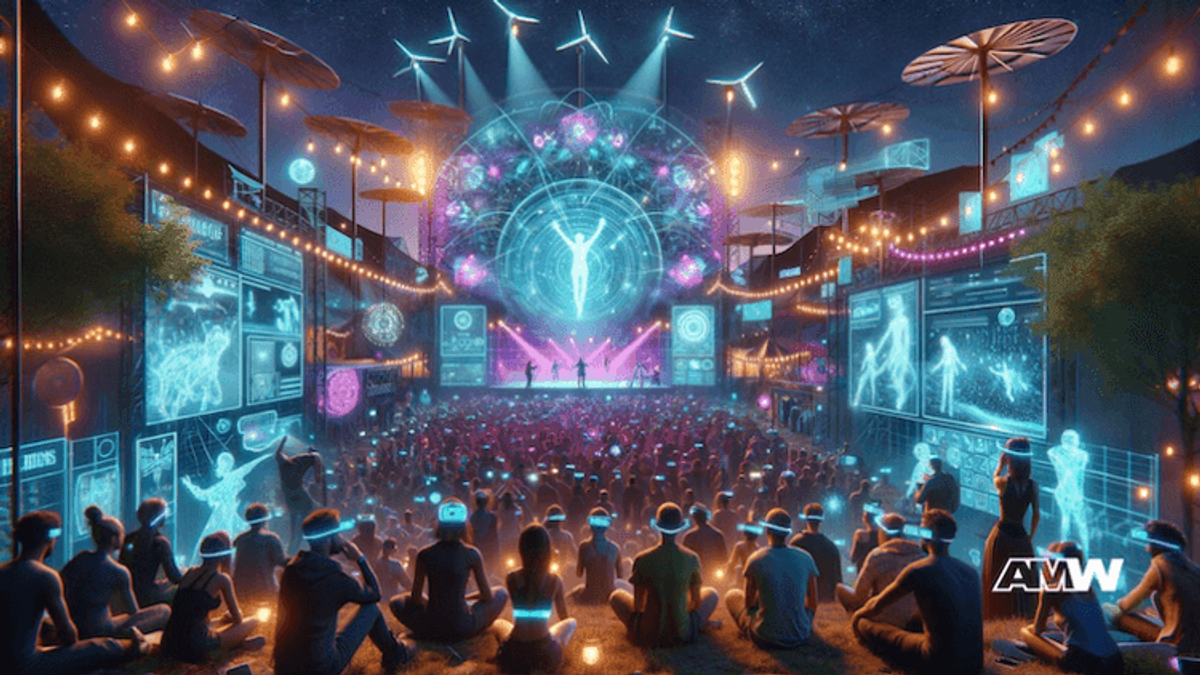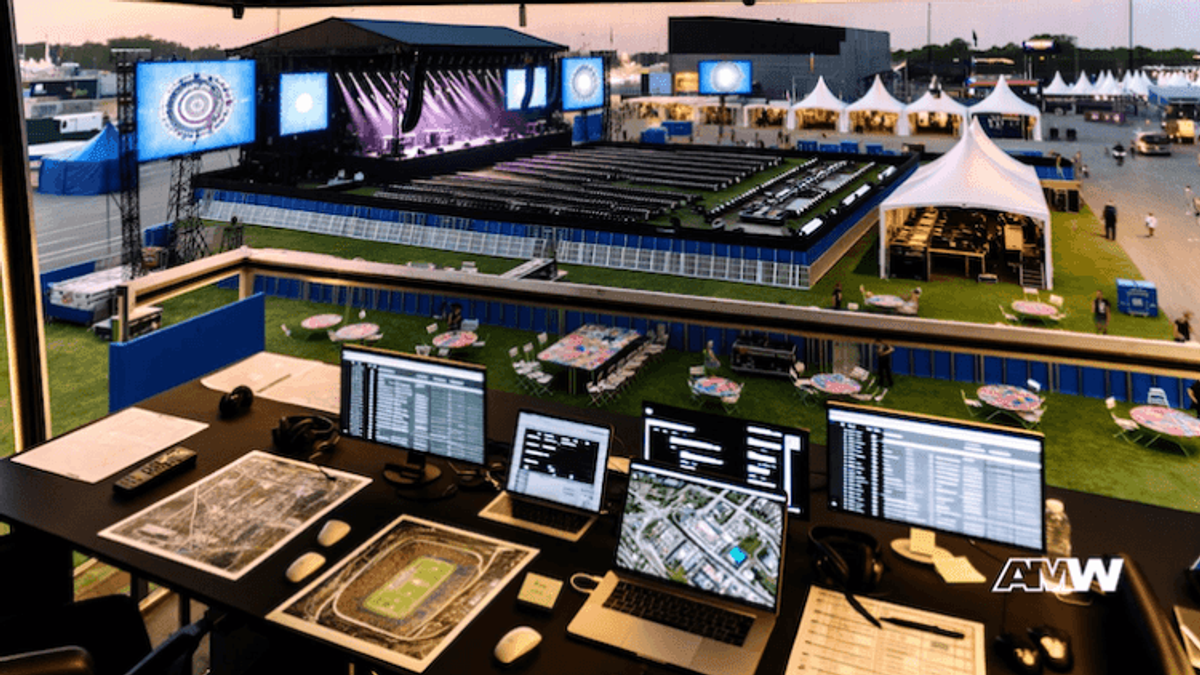Music Festival Management: Behind the Scenes

Music festivals have evolved into a vibrant tapestry of cultural celebration, bringing together artists, fans, and communities in a dynamic showcase of creativity and connection.
Quick Summary
Music festivals thrive on meticulous event management, with extensive planning months to years in advance, from scheduling artists to budgeting. A cohesive team, leveraging technology for efficient communication and operations, brings these events to life. Community engagement and sustainability efforts are vital, fostering inclusivity and eco-friendly practices. Despite challenges like weather and logistics, the rewards are immense, creating lasting memories and cultural impacts. Looking forwar
Behind the pulsating rhythms and unforgettable performances, however, lies an intricate world of Event management, planning, and execution that turns these grand visions into reality.
This blog post offers an insider's look into music festival management's complex yet rewarding realm, highlighting the dedication and innovation that fuel these extraordinary events.
Ready to Grow Your Business?
Get a free consultation and custom strategy tailored to your goals.
The Symphony of Planning

At the heart of every successful music festival is a meticulously crafted plan that serves as the event's blueprint. This process begins months, or even years, in advance, with the selection of dates, venues, and lineups. Managers must navigate the logistical labyrinth of scheduling artists, securing permits, and coordinating with local authorities, all while keeping the festival's vision and goals at the forefront.
The planning stage also involves detailed budgeting, from artist fees and stage design to security and sanitation services. Financial foresight and strategic resource allocation are crucial to ensuring the festival's success, sustainability, and growth.
Harmonizing Teams and Technology

Behind every music festival is a dedicated team of professionals working harmoniously to bring the event to life. From production crews and sound engineers to marketing specialists and customer service representatives, each member plays a critical role in orchestrating the festival experience. The key to this harmonization is effective communication facilitated by the latest technology and project management tools.
Digital platforms and software advancements have revolutionized festival management, enabling teams to streamline operations, enhance audience engagement, and deliver personalized experiences. From ticketing systems and mobile apps to social media channels and virtual reality, technology empowers managers to create immersive and interactive festivals that resonate with attendees on a deeper level.
Cultivating Community and Sustainability

At its core, a music festival celebrates community, bringing together people from different backgrounds to share the joy of music and arts. Festival managers play a pivotal role in fostering this sense of community, ensuring the event is accessible, inclusive, and reflective of its audience's values and interests. Engaging with local artists, businesses, and non-profits enriches the festival experience and strengthens the bonds between the event and its host community.
Sustainability has also become a critical focus for festival management, with a growing emphasis on minimizing environmental impact and promoting eco-friendly practices. From waste reduction and recycling programs to using renewable energy sources, managers are implementing innovative solutions to ensure that future generations can enjoy festivals.
Facing the Music: Challenges and Rewards

Managing a music festival has challenges, from unpredictable weather and technical glitches to last-minute cancellations and security concerns. Yet, within these challenges, the true spirit of festival management shines. The ability to adapt, innovate, and persevere through adversity transforms an ordinary event into an unforgettable experience.
The rewards of music festival management are immeasurable, reflected not only in the event's success but also in the lasting memories and positive impacts it creates. Seeing the smiles on attendees' faces, the power of music to unite people, and contributing to communities' cultural and economic vitality motivate festival managers to continue pushing boundaries and elevating the festival experience.
Encore: The Future of Festivals

As we look to the future, the world of music festival management is ripe with possibilities. Emerging technologies, evolving audience expectations, and a growing emphasis on social responsibility are shaping the next generation of festivals. Managers who embrace innovation, prioritize sustainability, and remain committed to their vision will lead the way in creating events that entertain, inspire, and connect.
In conclusion, the journey of music festival management is a testament to the power of passion, creativity, and collaboration. Behind the scenes, countless individuals' hard work, dedication, and innovation make these celebrations of music and culture possible. As we continue to navigate the challenges and embrace the opportunities ahead, let us celebrate the magic of music festivals and the remarkable people who bring them to life.
Frequently Asked Questions (FAQ) About Music Festival Management

How far in advance should planning for a music festival begin?
Planning for a music festival can begin in advance, 12 to 18 months or longer. This timeframe allows for thorough venue selection, artist bookings, permit acquisitions, and a strategic marketing campaign implementation. Early planning also provides a buffer for unforeseen challenges and adjustments.
What are the key elements of a successful music festival?
The key elements of a successful music festival include:
Ready to Grow Your Business?
Get a free consultation and custom strategy tailored to your goals.
- A diverse and appealing lineup.
- Efficient logistics and operations.
- Strong marketing and community engagement.
- Excellent customer service.
- A focus on safety and sustainability.
Creating an immersive and memorable attendee experience is also crucial.
What role does technology play in music festival management?
Technology is pivotal in streamlining festival operations, enhancing attendee experiences, and expanding audience reach, including ticketing platforms, event apps, RFID wristbands, social media engagement, and virtual or augmented reality experiences. Technology also aids in data collection and analysis for continuous improvement.
How can music festivals promote sustainability?
Music festivals promote sustainability by implementing eco-friendly practices such as waste reduction and recycling, using renewable energy sources, offering sustainable transportation options, and minimizing water usage. Engaging attendees in these efforts and partnering with environmental organizations can amplify their impact.
How do you measure the success of a music festival?
Various metrics, including ticket sales, attendee satisfaction, social media engagement, and coverage, can measure a successful music festival. Other indicators include:
- The event's smooth execution.
Ready to Grow Your Business?
Get a free consultation and custom strategy tailored to your goals.
- The achievement of sustainability goals.
- The positive economic impact on the local community.
What are the biggest challenges in music festival management?
The biggest challenges include:
- Managing logistical complexities.
- Ensuring safety and security.
- Adapting to weather conditions.
- Handling artist and vendor coordination.
- Meeting the expectations of a diverse audience.
Financial management and sustainability efforts also present significant challenges.
How can festival managers stay ahead of industry trends?
Festival managers can stay ahead of industry trends by attending conferences, networking with peers, engaging with cutting-edge technology, and monitoring social media and cultural shifts. Continuous learning and openness to innovation are key to adapting and thriving in the dynamic festival landscape.
By addressing these common inquiries, festival organizers and attendees alike can better understand the intricate behind the scenes of music festivals, illuminating the path to creating events that resonate, inspire, and endure.
Ready to Grow Your Business?
Get a free consultation and custom strategy tailored to your goals.
Related Articles

Behind Tomorrowland’s Rise to a Multi-Million Euro Cultural Movement
When Tomorrowland Belgium sells out 400,000 tickets across two weekends in less than an hour each year, it's not merely luck or lineup strength driving those numbers. The festival has engineered one o

Philips Bodygroom as a Case Study in Bold Marketing and Consumer Insight
The men's grooming industry has undergone a dramatic transformation over the past two decades, moving from basic necessities to comprehensive personal care routines. Within this evolution, few brands

Inside the Timeless Appeal of America’s Favorite Oat Circles - Cheerios
When General Mills introduced Cheerios to American breakfast tables in 1941, no one could have predicted that these simple whole grain oats circles would become one of the most recognizable brands in